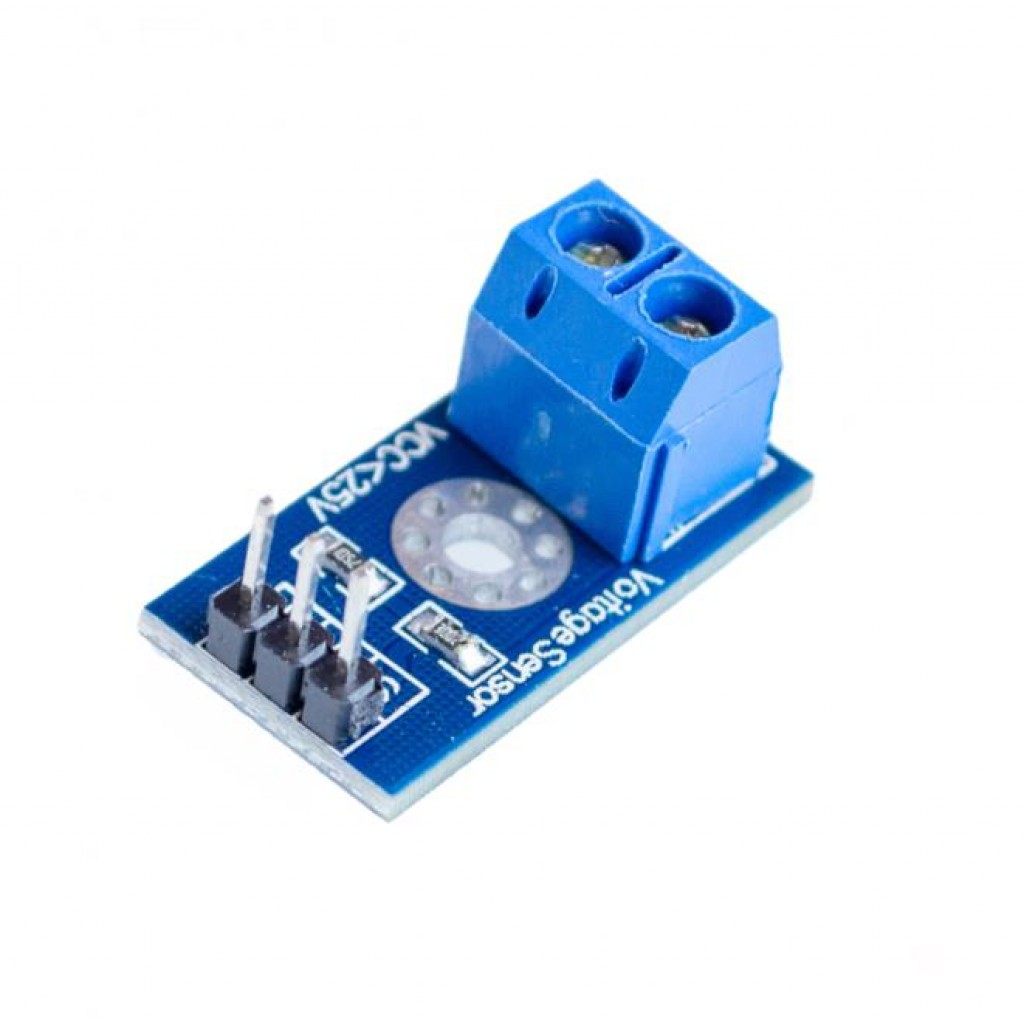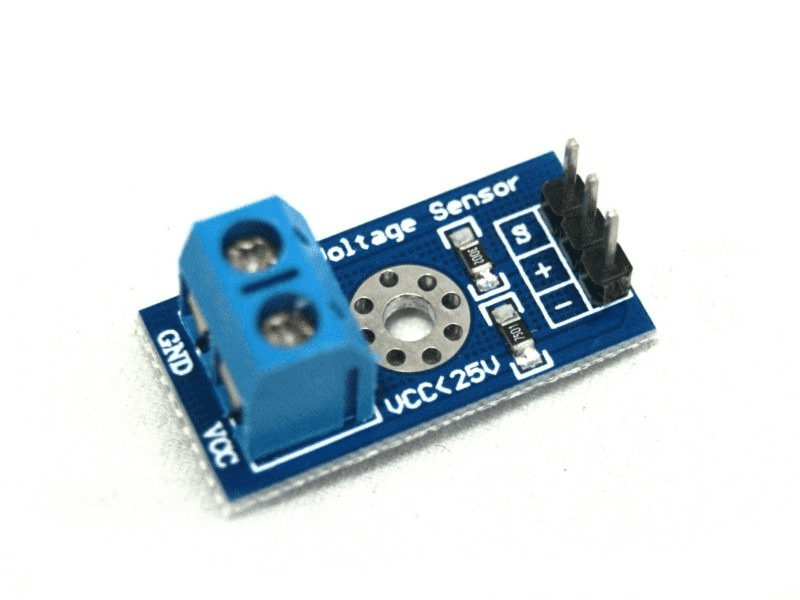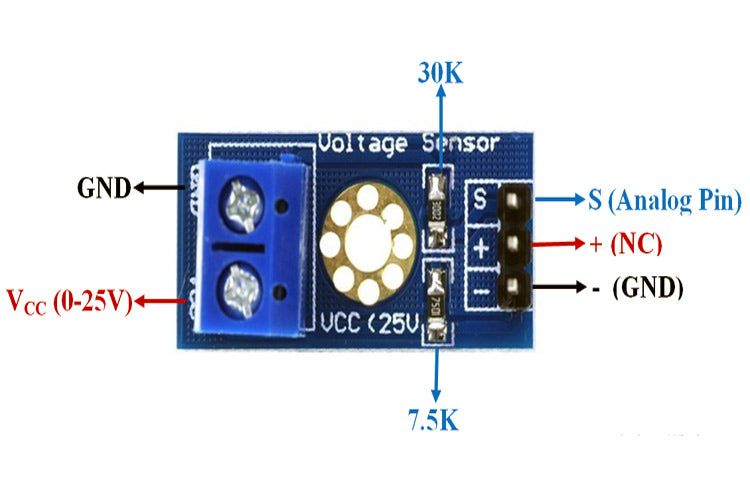I like the product and how easy is it to use them and making a tight grip on the wires
for additional 5% discount! + Redeem RC COINS 👇
Voltage Sensor Module 25V
Let us know!
We'll try to match the price for you
Couldn't load pickup availability






The Voltage Sensor Module 25V is a simple but very useful module that uses a potential divider to reduce an input voltage by a factor of 5. The Voltage Detection Sensor Module 25V allows you to use the analog input of a microcontroller to monitor voltages much higher than it capable of sensing.
For example, with a 0-5V analog input range, you are able to measure a voltage up to 25V. The module also includes convenient screw terminals for easy and secure connection of a wire.
This Voltage Sensor module is based on the principle of resistive voltage divider design, can make the red terminal connector input voltage to 5 times smaller. Arduino analog input voltages up to 5 v, the voltage detection module input voltage not greater than 5Vx5=25V.
Read more : Understanding Voltage Sensors

Discover top-rated Voltage Sensors.
| Voltage input range | DC 0-25 V |
| Voltage detection range | DC 0.02445 V to 25 V |
| Dimensions | 3 x 2 x 1cms |
| Weight | 5 grams |